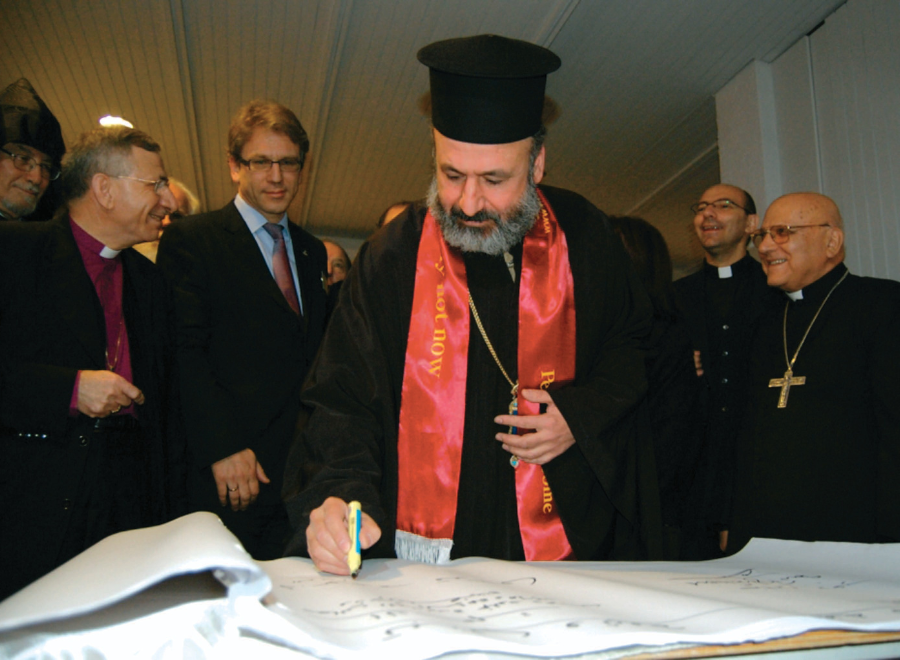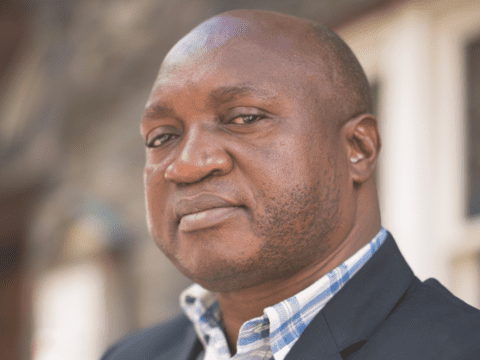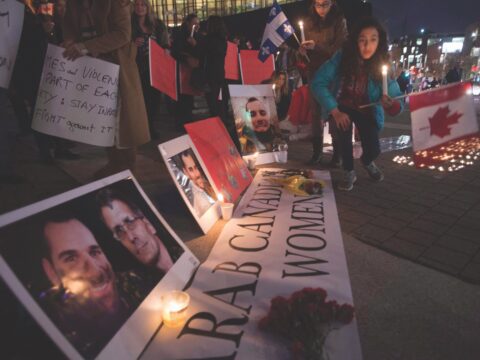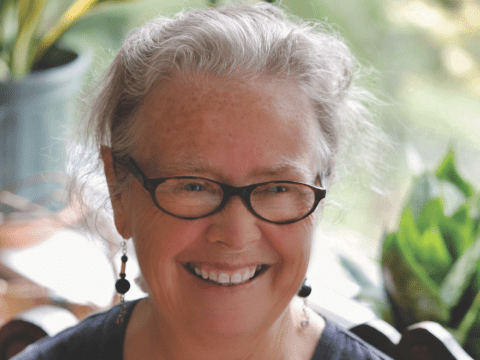The United Church’s position on Israel-Palestine has been a flashpoint at every General Council in recent memory. Already there are strong indications the issue will loom large again when commissioners next assemble in Ottawa in August 2012.
A delegation of church leaders working on Middle East policy recommendations leaves on a fact-finding trip to the region this month. And congregations are being invited to study a document from Palestinian Christian leaders that declares the “Israeli occupation of Palestinian land is a sin against God and humanity” and urges Christians worldwide to support a range of resistance measures, including economic sanctions against Israel.
The Canadian Jewish Congress has figured prominently in past General Council debates on the Middle East. The CJC’s reaction to the Palestinian leaders’ document serves notice it will continue to make its voice heard. A scathing point-by-point rebuttal accuses the writers of using high-minded language to disguise a “thoroughly hostile . . . intent to delegitimize and demonize Israel.”
The document — titled A Moment of Truth: A Word of Faith, Hope and Love from the Heart of Palestinian Suffering — is more than a year old. Developed by a group of 13 Christian leaders rallied under the name KAIROS Palestine, the text has been in circulation in other denominations in Canada and elsewhere for some time but was not officially presented to the United Church until last November’s meeting of the General Council Executive in Toronto.
Even then it was handled gingerly. Language that would have “commended” the document to the church for study was softened to “offer” it instead. Decision-makers also insisted that other related material, including the CJC response and a letter of support from South African Archbishop Desmond Tutu, be part of the package made available to church members.
That the KAIROS Palestine document exists at all is a minor miracle and perhaps an indication of the growing desperation among Palestinians in the West Bank and Gaza after more than 40 years of Israeli military occupation.
Palestinian Christians are a tiny remnant of what they once were, yet sects and groupings are numerous and their leaders notoriously fractious. KAIROS Palestine is perhaps guilty of understatement when it says the document “did not come about spontaneously, and it is not the result of coincidence.” In reality, it was the result of determined bridge-building.
Rev. Bruce Gregersen, the United Church’s senior official for programs, credits two United Church overseas staff, Rev. Chris Ferguson and Susan Ferguson, who worked for the World Council of Churches in Jerusalem from 2004 to 2006, with helping to lay the groundwork for the document. Gregersen was on hand at a December 2009 meeting of the Palestine Israel Ecumenical Forum in Bethlehem when the statement was unveiled. “In this document you have given us a clear call to prayer and action,” he told the gathering.
Echoing an appeal issued by South African churches in the mid-1980s during the height of the apartheid regime, the KAIROS document asserts, “We have reached a dead end in the tragedy of the Palestinian people,” and criticizes political leaders who “content themselves with managing the crisis rather than committing themselves to the serious task of finding a way to resolve it.” The problem, say the authors, “is not just a political one. It is a policy in which human beings are destroyed, and this must be of concern to the Church.”
Much of the 8,000-word document is devoted to placing the Palestinian “catastrophe” in a theological context, couching a case for justice based on “faith, hope and love in often dense religious language. The authors are more straightforward as they assail Israel’s policies in the West Bank and Gaza, criticize conservative theologians in the West for imparting “a biblical and theological legitimacy” to the occupation, and declare the connection of Palestinians to the Holy Land a “natural right.”
The authors also favour the creation of a single secular state in the Holy Land, hint they support the right of return for Palestinian refugees and their descendants, and advocate economic sanctions against Israel, including divestment and a boycott “of everything produced by the occupation.” Such campaigns must proclaim “that their object is not revenge,” says the document, “but rather to put an end to the existing evil, liberating both the perpetrators and the victims of injustice.”
In the past, the Canadian Jewish Congress has reacted forcefully to calls from church groups for economic sanctions against Israel, so it comes as no surprise that the CJC takes a very dim view of the KAIROS document.
“Their one-sided diatribe against Israel echoes the campaigns of other extremists opposed to Israel, who have hijacked Western democratic institutions including the UN and the international human rights agenda,” the CJC states in its 4,000-word response. “The KAIROS Palestine Document is intent on apportioning blame rather than creatively exploring constructive opportunities to transcend conflict.”
The CJC goes onto charge that the document is also theologically one-sided: “How is it conceivable that the Palestinian connection to the land as a ‘natural right’ has no analogue on the Israeli side? . . . Once again, the Jewish Bible is portrayed as illegitimate and the underpinning of a deliberate campaign to oppress Palestinians.”
The CJC had a high profile at the last General Council meeting in 2009 when commissioners backed away from a boycott proposal. On that occasion, and at two previous General Councils, calls for economic measures against Israel had worked their way to the upper echelons of decision-making from the church’s lower courts. While Gregersen made it clear to the Executive last fall that the United Church is not officially endorsing the KAIROS document, the fact that the decision to circulate it came from the General Council level marks a subtle but perhaps significant shift.
Meanwhile, a group made up of immediate past and current moderators, general secretary Nora Sanders and two members of the General Council Executive continues to develop Middle Eastern policy recommendations to be presented to the 2012 General Council. The group plans to visit the Middle East for eight days this month. Gregersen will go along as a staff resource person.
Another group, the General Council’s theology and inter-church interfaith committee, is looking at the issue in the context of the theology of land. Rev. Arlyce Schiebout, who chairs the committee, says it will look at “the right of entitlement or righteous living, to be tenants in God’s land,” plus questions such as “Who are the first peoples of Palestine and Israel? Does this question matter? Is land necessary for Jewish identity?”
Former moderator Very Rev. David Giuliano chairs the group heading to the Middle East. He won’t comment on its progress so far or speculate on possible conclusions. Its tasks, outlined by General Council’s sub-Executive last year, are daunting.
The group has to build on previous General Council actions on the Middle East, which include calls for an end to Israeli occupation and withdrawal to pre-1967 borders, an end to violent attacks by Palestinians, and recognition “by the emergent State of Palestine of Israel’s right to exist as a Jewish state within safe and secure borders” — in other words, a two-state solution. It must consider United Church-Jewish relationships as outlined in a 1997 paper called Bearing Faithful Witness, while also taking into account ecumenical partners’ actions and statements, including the KAIROS Palestine document. After listening and talking to other “Palestinian, Muslim, Jewish and Israeli organizations,” the group will bring a report to the spring meeting of the General Council Executive.
Already, the group has held meetings with representatives of organizations ranging from the CJC to the Toronto Conference-based Holy Land Awareness and Action Task Group (which backed the Israel boycott call at the 2009 General Council).
The Holy Land Awareness task group didn’t wait for the KAIROS document to go into official circulation. It sent copies to all ministers in Toronto Southeast and South West Presbyteries last September. The document has also been making the rounds in Montreal and Ottawa Conference since the Conference’s annual meeting last spring.
Now that it is widely available, the document will no doubt raise the profile of the Israel-Palestine issue across the church. The importance of that is not lost on longtime activists.
“It is the first document of its kind from brother and sister Christians in Palestine that clearly notes both non-violent methods of overcoming injustice and a commitment to the same,” says Rev. Brian McIntosh of the Holy Land Awareness task group. “It’s really a moral call to the churches around the world.”
—With files from David Wilson
***
This story first appeared in The United Church Observer’s February 2011 issue with the title “Palestine’s ‘clear call to prayer and action.'”















